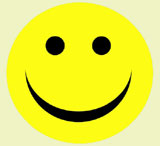 Like many emotional responses scientists haven't worked out yet, laughter is an especially difficult one as it can be linked to happiness, nervousness, being embarassed, or even disappointed. However scientists think it is a social signal. It can be used to relax people and it can also be used to exclude people by laughing at them. It may also be a way of demonstrating control - when the boss makes a joke everyone laughs. Like many emotional responses scientists haven't worked out yet, laughter is an especially difficult one as it can be linked to happiness, nervousness, being embarassed, or even disappointed. However scientists think it is a social signal. It can be used to relax people and it can also be used to exclude people by laughing at them. It may also be a way of demonstrating control - when the boss makes a joke everyone laughs.
You may well think that the answer of the question "when people laugh" is obvious. However, when one researcher recorded exactly when people laughed he found that this was not usually the case.
We laugh, it seems, mainly at rather
mundanecomments and ordinary life events rather than jokes. Behavioural psychologists will argue that laughter is not quite the sophisticated conscious process that you might expect, but a primitive response to our environment.
We can laugh for many reasons. Laughter may strengthen social bonds as it is an outward sign that we are feeling comfortable in our immediate environment; sharing a joke is essentially a form of social bonding. Laughter is a natural form of relaxation and we all have felt 'weak' from laughing too hard.
While laughter helps form social networks it also excludes outsiders. We all have tend to laugh at the boss's jokes (even if they are not funny), so having the power to induce laughter may be a sign of authority. In a tense situation laughter may be a nervous reaction, a way to diffuse the potential threat of the confrontation - the nervous giggle. Another possible reason for laughter is the derision and call of triumph of the winner in a battle; laughter may also be linked with power and aggression. There may be many reasons for a chuckle but no final
'punch line'in laughter research.
|
|
note:
|
mundane: 世俗的
punch line: (故事、戏剧、 笑话等中的)妙语
|
|
